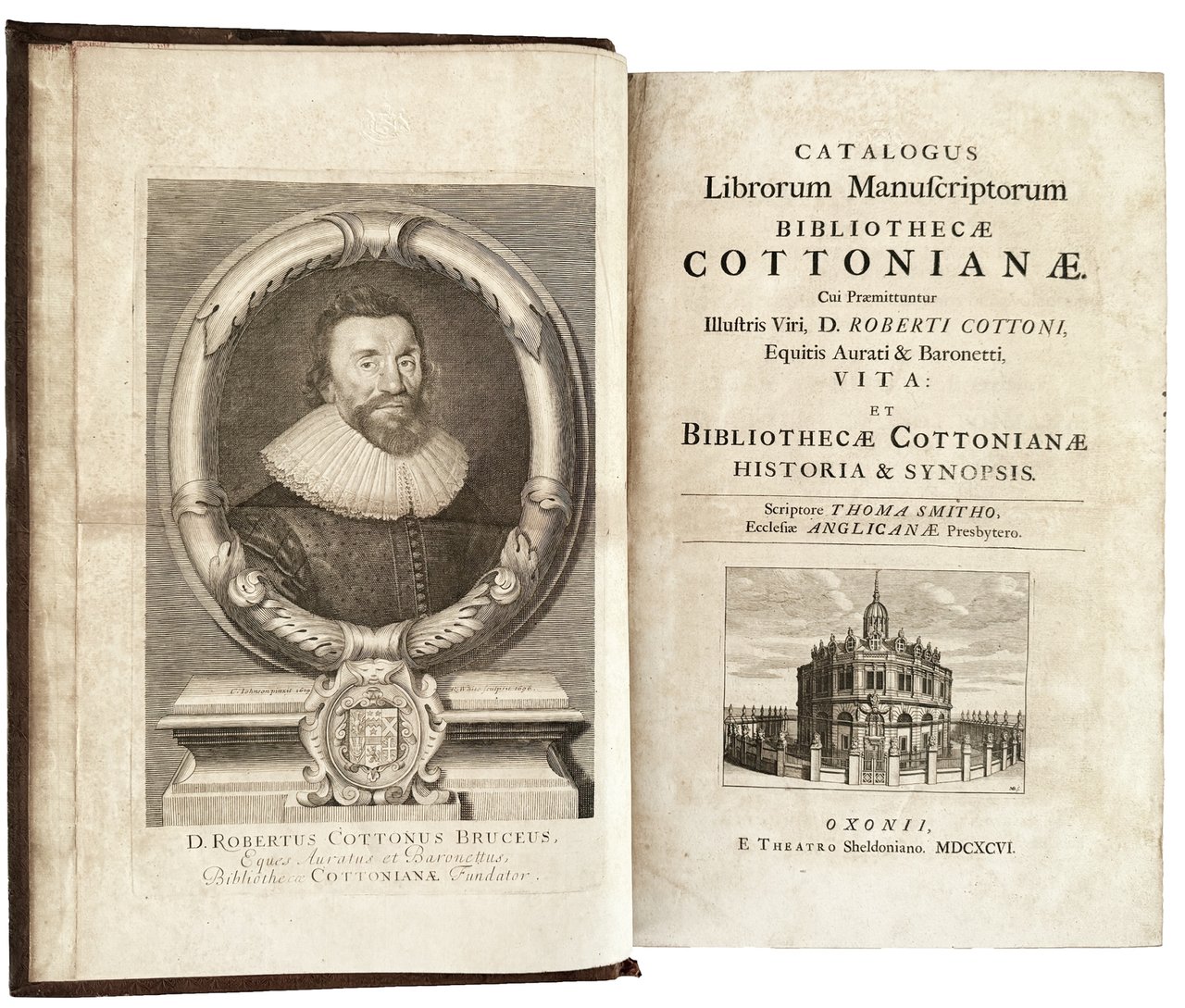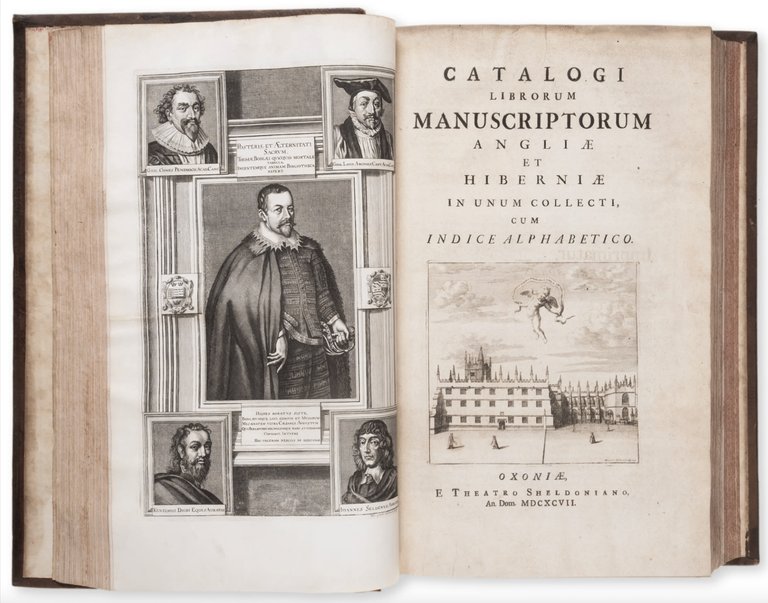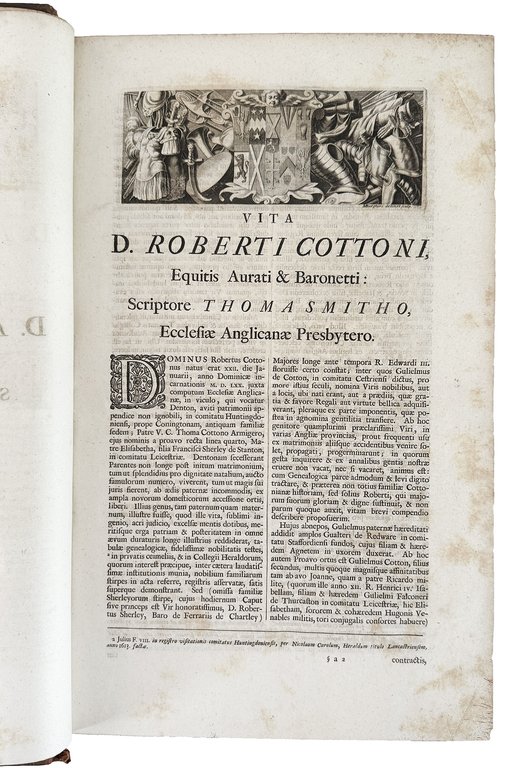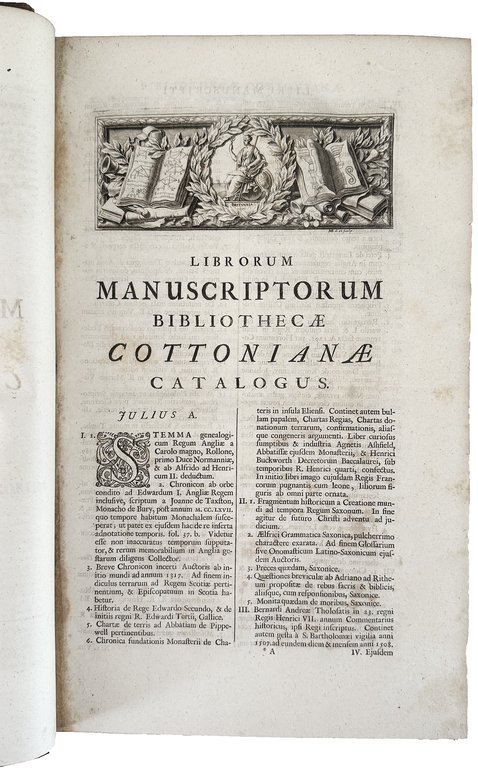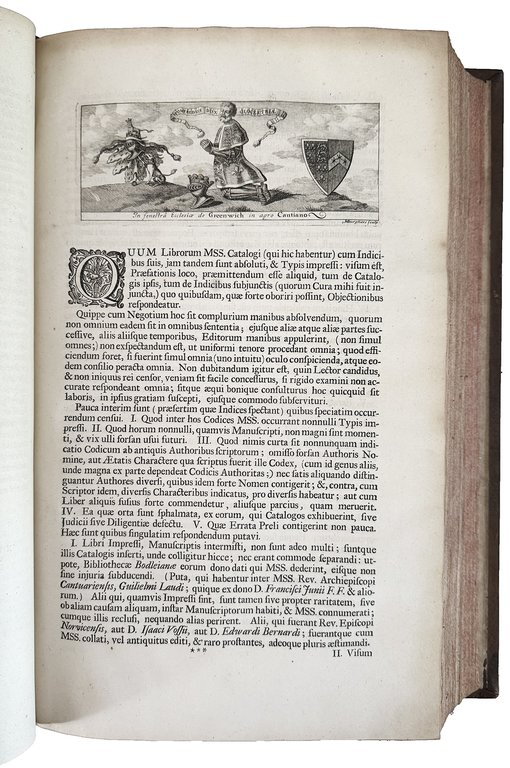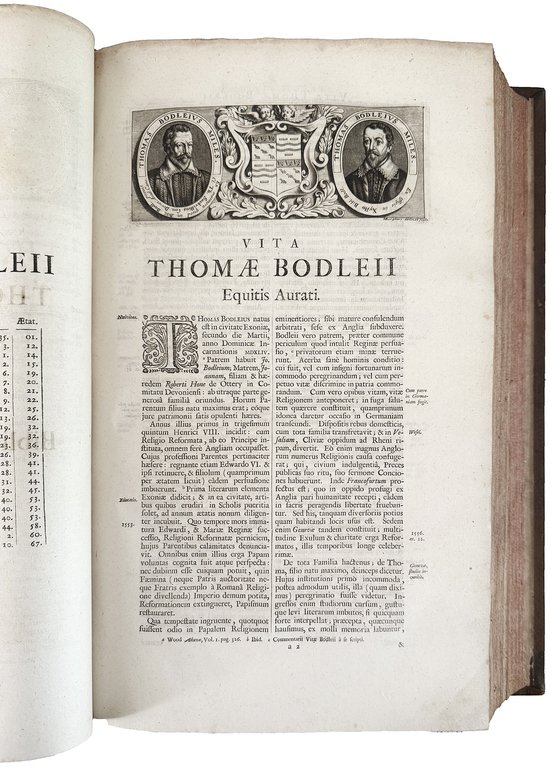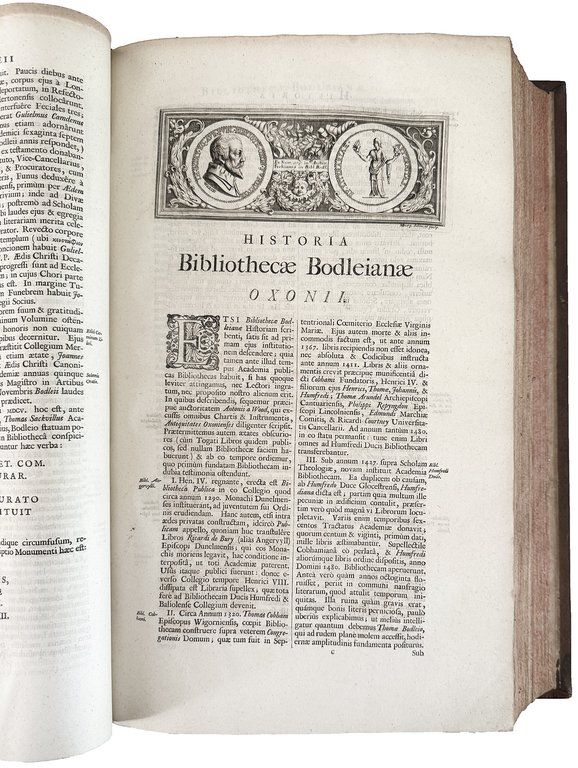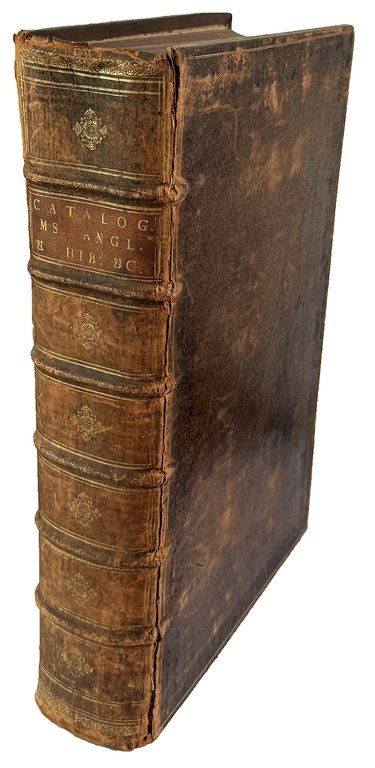Catalogus librorum manuscriptorum bibliothecae Cottonianae (bound with:) Catalogi librorum manuscriptorum Angliae et Hiberniae in unum collecti cum indice alphabetico
Catalogus librorum manuscriptorum bibliothecae Cottonianae (bound with:) Catalogi librorum manuscriptorum Angliae et Hiberniae in unum collecti cum indice alphabetico
Payment methods
- PayPal
- Credit card
- Bank transfer
- Pubblica amministrazione
- Carta del Docente
Details
- Year of publication
- 1696-1697
- Place of printing
- Oxford
- Author
- SMITH, Thomas (1638-1710)-BERNARD, Edward (1638-1696)
- Publishers
- Sheldonian Theatre
- Keyword
- seicento
- State of preservation
- Good
- Languages
- Italian
- Binding
- Hardcover
- Condition
- Used
Description
Two works in one volume, folio (395x250 mm). Smith: [12], L, [2], 159, [25] pp. Engraved portrait of Sir Robert Cotton by R. White after C. Johnson, title vignette of the Sheldonian Theater and 2 engraved headpieces by M. Burghers. Text printed in two columns. Bernard: two parts: [32], 374 [i.e. 376], [44], 88, [10], 89-274 [i. e. 174], [8] pp.; 403 [i.e. 308], [24], 65, [9] pp. Engraved frontispiece portrait of Sir Thomas Bodley, with inset portraits of the Earl of Pembroke, Archbishop Laud, Sir Kenelm Digby and John Selden, engraved vignette on title-page of the Bodleian Library. Epistola dated September 1698. Contemporary sprinkled calf, spine gilt (rubbed, upper joint split, spine ends a little worn). Some foxing and browning due to the quality of the paper, overall a good, genuine copy from the Macclesfield Library (with its engraved bookplate and embossed stamp).
I. First edition “of the only complete record of the celebrated manuscript library of Sir Robert Bruce Cotton which to the present day is one of the best-known components of the British Library; presented by his grandson, Sir John Cotton, to whom the volume is dedicated, to the nation in 1701, it fell victim to a disastrous fire in 1731, when 212 of 958 manuscripts were destroyed or badly damaged. Thomas Smith, a non-juring divine and scholar, at times of Magdalen College, Oxford, had a rather checkered career, but finally settled down in the household of Sir John Cotton and his grandson, another Sir John, and a fine collector himself, was for twelve years in charge of the Cottonian manuscripts” (Bibliotheca Bibliographica Breslaueriana, Christie's, New York, 2005, part II, no. 161).
One of the three collections acquired by the British government to form the British Museum Library, the library of Sir Robert Bruce Cotton (1571-1631) is “arguably the most important collection of manuscripts ever assembled in Britain by a private individual” (C.J. Wright, Sir Robert Cotton As Collector: Essays on an Early Stuart Courtier and His Legacy, London, 1997). The library, which was transferred to the British museum in 1757 and contains spectacular treasures like the Lindisfarne Gospels, two of the contemporary copies of the Magna Charta, and the only surviving manuscript of Beowulf, was the result of Cotton's forty-year research and effort to preserve manuscript materials, principally relating to England's history and governmental affairs. Located in Cotton House in the Palace of Westminster, the library was housed in a narrow room and had an unusual arrangement. A bronze bust of a historical personage, including Augustus Caesar, Cleopatra, Julius Caesar, Nero, Otho, and Vespasian, was placed at the head of each bookcase. In total, there were fourteen busts, and the shelf marks were thus formed by bust name, shelf letter and volume number. The catalogue, compiled by Thomas Smith, includes a life of Cotton and a history of the library (cf. C.G. Tite, ed., Catalogue of the manuscripts in the Cottonian library, 1696, Cambridge, 1984).
II. “First edition of Bernard's great catalogue of manuscripts in British libraries. This is ‘one of the most notable achievements of early English bibliographers […] When G. Haenel, in 1830, printed his ‘Catalogi librorum manuscriptorum', he thought so much of Bernard's work that he endeavoured to supplement him rather than to duplicate his lists' (De Ricci, p. 9). Part I [Bibliotheca Bodleiana] contains a life of Bodley, a description of the Bodleian, lists of various collections of manuscripts contained in it, such as those of Pembroke, Cromwell, Digby, Laud, Junius, Hyde and Ashmole. Part II [Bibliothecae collegiorum oxiniensium] lists the manuscripts in Oxford Colleges; Part III [Academia Cantabrigiensis] those in Cambridge Colleges. Part I of vol. 2 [Publicae quam privatae Angliae bibliothecae] contains the manuscripts in public, cathedral, and school libraries and in some fifty private collections, including those of Evelyn Hobbes, Brothe
